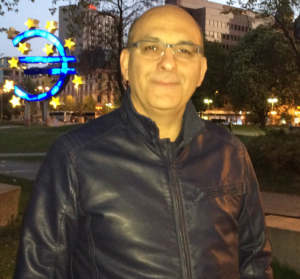 A recent news report published in Science ran with the alarming headline: “A shady market in scientific papers mars Iran’s rise in science.”
A recent news report published in Science ran with the alarming headline: “A shady market in scientific papers mars Iran’s rise in science.”
The story reports that some Iranian scholars buy scientific papers to publish under their name, and that there is a prosperous market in Iran to sell such articles to researchers. While it was interesting reading about the Iranian scientific community (something of a novelty), there are some notable omissions in the report.
I agree that there are some fraudsters in the Iranian scientific community who abuse the accelerated demand from Iranian researchers for publishing in “indexed” journals by selling papers. Yet this kind of report overshadows the whole Iranian community of researchers whose work is entirely distinct from this unethical practice.
The increased pressure on Iranian faculty members to publish articles in reputable journals, which is a requirement for their academic promotion, is one of the main reasons for this problem. The pressure to reach an acceptable level of English in journal submissions can also push researchers and academics to seek assistance with their papers, and is another reason why such a “shady market” can still exist. Whenever and wherever a huge demand exists, there are always some people who misuse the situation. But there is a risk that some examples of bad practice may be extrapolated to the whole community, and may affect the way all Iranian scientists are perceived and treated by editors worldwide.
Of course what is being done is unethical and should be classed as illegal (as a new bill in Iran is expected to enforce), but is there any place in the world where illegal and unethical acts are not committed? What can be questionable is whether appropriate action has been taken to prevent the market of selling papers. An initial step is to prepare a straightforward guideline showing what is legitimate. This process has already begun by the Iranian Ministry of Health drafting the new “Iranian Guideline on Medical Publishing,” which is inspired by the recommendations and guidelines released by the Committee on Publication Ethics. By the Iranian Ministry of Health releasing these guidelines, no one can claim that the market of selling papers might be legitimate.
Despite this article being in the “latest news” tab, this issue dates back to many years ago when financial and promotional incentives were offered to Iranian researchers to increase their output of published articles. The report also relies very much on what was heard from a handful of Iranians who relate their experiences of research being falsely attributed to an author.
It’s a shame that the report didn’t offer any view from the Iranian researchers who are performing research and publishing it while struggling with various financial and logistical obstacles. Instead it gave us a picture from a particular district of Tehran, which can surely be found in many other countries too. It’s important that international editors and scholars don’t judge Iran’s large scientific community by the actions of a small “shady” minority.
Behrooz Astaneh is the editor in chief of the Iranian Journal of Medical Sciences and visiting editor of The BMJ.
Competing interests: BA is working in the Shiraz University of Medical Sciences in Iran.